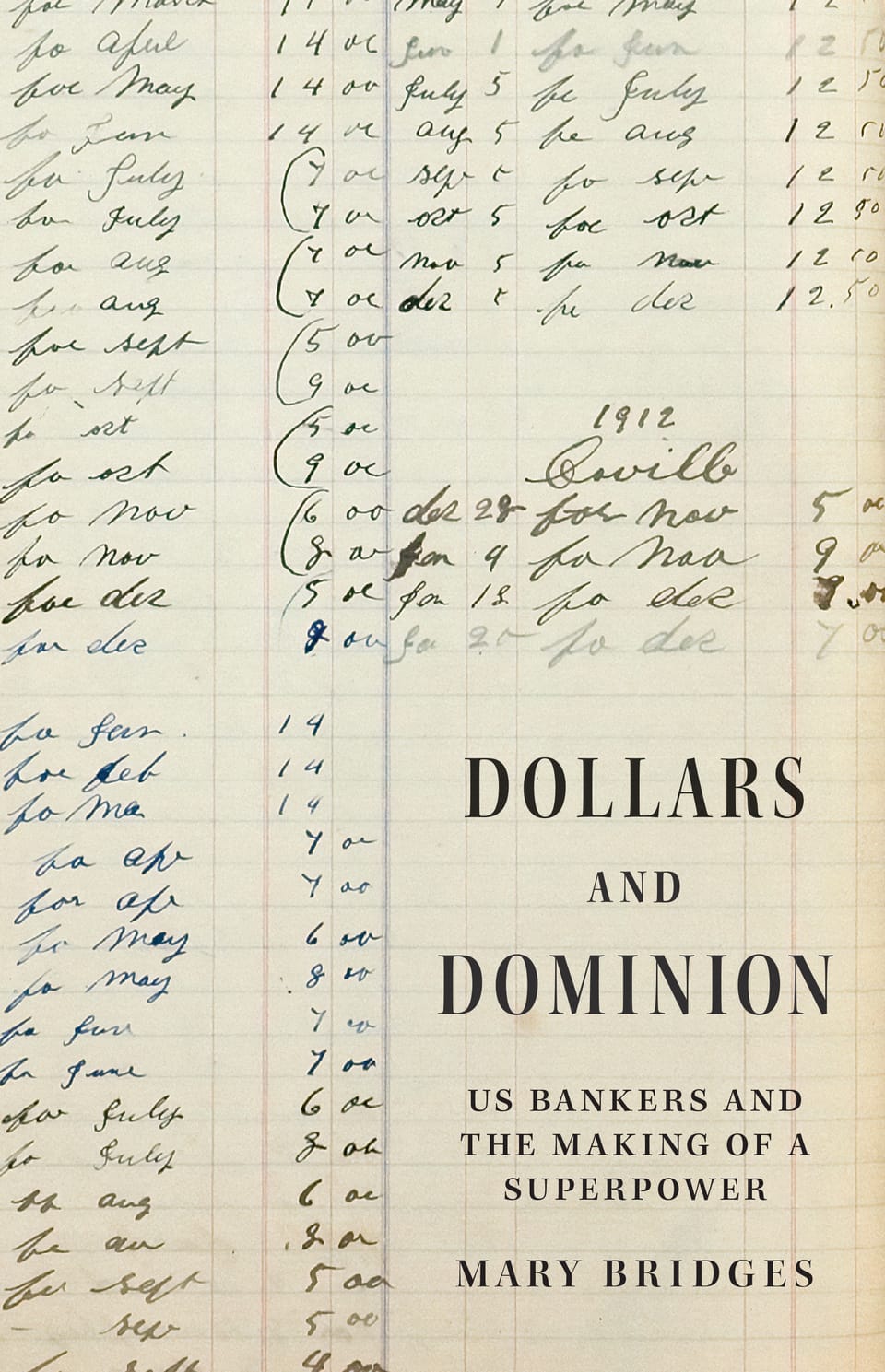Podcast Reflections: Mary Bridges on US Bankers Abroad and the Making of a Global Superpower

I'm on research leave this fall, and it is giving me time to step back and reflect on what I've been up to the past few years.
A lot of my work during that time has gone into making the podcast, Peoples & Things, which the team involved describes as being about human life with technology. I'm very lucky that my university supports the podcast, both indirectly and directly. Indirectly, my department and dean have recognized its value, including in things like my annual evaluation letters. But much more importantly, the show received direct support from the university in the form of production labor. The show is developed at Virginia Tech's Newman Library Athenaeum as part of Athenaeum Media, a media production adjunct of Virginia Tech Publishing & Press in the University Libraries. The podcast is produced by Joe Forte, who records the interviews and introductions and organizes the team's efforts, which most often means trying to get me to do what I promised to do. And the show is edited by Mandi Lamb, who puts hours into each episode to ensure audio and video quality. Without Joe and Mandi's hard work, the show would simply not exist, and I am immensely grateful to them and to the VT higher ups who enable it to happen. We are also lucky that the New Books Network, the largest academic podcast platform in the world, carries the show. The team at NBN has helped us immensely, and we are grateful to be a part of their community.
One thing we'll be working on over the coming months is stepping up our promotion of the podcast. To date, it's been virtually non-existent. For a long time, the team has been at capacity just getting the show done and out. The show has thousands of listeners, but that's almost wholly to do with our being on the New Books Network, which has expansive reach.
Anyway, over the coming months, I'll be writing a bit about new episodes and, even more, looking back at older ones and why we made them. So to that end . . .
Last week, we released an episode with historian Mary Bridges, who is Ernest May Fellow in History and Policy at the Belfer Center for Science and International Affairs at Harvard University’s Kennedy School of Government. Mary's book, Dollars and Dominion: US Bankers and the Making of a Superpower, takes an infrastructural view of banking institutions. It is a fascinating examination of how US banks, almost by accident, became a durable part of the global financial system in the first half of the 20th century. Put too simply, the American financial hegemony of the post-World War Two period depended in part on the hard infrastructural work that American banks did in the half century before the war.
We view Mary's episode as part of a little series we have going on technologies of money and finance. Indeed, I'm pretty sure I first heard about Mary's work through Sean Vanatta, senior lecturer in economic and social history at the University of Glasgow and senior fellow at the Wharton Initiative for Financial Policy and Regulation, whose book Plastic Capitalism: Banks, Credit Cards, and the End of Financial Control was featured on an earlier P&T episode. You can also look forward to an episode in this series later this year with Lana Swartz, Associate Professor of Media Studies at University of Virginia, on her book, New Money: How Payment Became Social Media, and her other research on technologies of finance and the cultures that use and surround it. If you have tips on other work on technologies of money and finance we should feature, please let us know.
Mary's episode was also a great example of one of the things I love most about making the podcast: How the work leads me to surprising new thoughts that I didn't foresee, how it spurs me into new terrain. It keeps life fresh. As I wrote about in an essay that came out of the episode, at one point in our conversation, Mary pushed and prodded at the idea of "infrastructure," which has gotten thrown around a lot in my worlds for years now, including by me. She pointed out that, often, how we have come to use the concept focuses us on stability (see, maintenance and repair) and, at times, to lose sight of decline and degradation. The way she put this critique struck a vibrant chord in me, and it led me to put down some thoughts (in the essay linked above) I've had for years about how and why human communities and infrastructure deteriorate.
In this way, the episode with Mary Bridges captured many of the best things about making Peoples & Things: It was a fun and fascinating conversation. It arose out of loving scholarly community and hopefully will lead to more. And it inspired new thinking and work. Doesn't get much better than that! And I look forward to talking with Mary more down the road.
